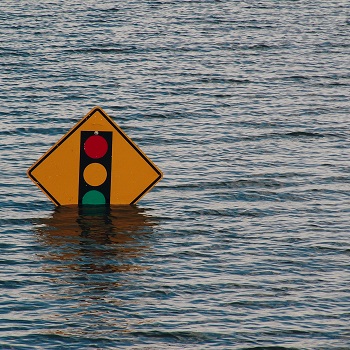Environment & Circular Economy
As a part of the European Green Deal, the European Commission is looking to ensure that the EU economy becomes more resource efficient and circular by changing the way companies produce and operate in Europe.
The FH Brussels Environment & Chemicals Practice develops leading public affairs strategies to help businesses respond to the fundamental changes to policy brought by the EU’s transition to the circular economy.
Why the circular economy is important for Europe, and for you
The transition to a Circular Economy is a core strategic objective for the EU and the political ambitions are high. The circular economy is the new regenerative growth and industrial strategy for Europe, and it is key to delivering climate-neutrality by 2050. The transition is also essential if the EU is to achieve strategic autonomy in a world with scarce resources and volatile prices by its decreasing reliance on primary raw materials.
To achieve these aims, the transition to a circular economy means fundamental changes to way companies design and market their products. Policy makers are looking at the best in class, and at changing business practices.
The transition started as the European Commission launched the first Circular Economy Action Plan in 2015. All 54 actions under this plan have been now delivered or are being implemented, but more needs to be done to reach a circular economy. Under the leadership of Ursula von der Leyen, the European Commission is now looking to speed-up the transition to a circular economy as core priority of the European Green Deal.
The second circular economy action plan was put forward in 2020 setting out a comprehensive programme of initiatives and measures to address production and consumption, waste, circularity in value-chains and sectors as well as horizontal action to promote circularity and a plan to enhance the EU’s global leadership on circular economy.
This new circular economy package is also more targeted at citizens with visible measures that should provide high-quality, functional and safe products which perform efficiently, last longer, and are designed for reuse, repair, and high-quality recycling. The European Commission is notably looking at well-designed economic instruments such as environmental taxation on landfill and incineration, and the use of VAT to promote circular economy activities, notably repair services.
We have been working on the EU circular economy agenda since the first 2015 communication and have experience in waste policy and on the 2018 European Strategy for Plastics in a Circular Economy. We know what impact this can have on your business and how to communicate your positions and your own perspective to policy makers.
From cradle to cradle
To close the loop in the EU Circular Economy, the European Commission will be looking at all parts of the supply chain and taking actions both on the low hanging fruits but also more fundamentals changes that can be made in the way companies operate:
- Design and production: Design for recycling has been a topic for packaging for several years now, the Commission is now turning on other products to optimise sortability and recyclability. Design for repair is also increasingly being discussed for electronics and textiles and complementing the existing concerns on planned obsolescence.
- Consumption and use: Consumer choices are instrumental to the circular economy. The European Commission wants to ensure that consumers know how to make the sustainable choice. Tools such as the Product Environmental Footpring (PEF) will be a way to inform consumers and incentivise sustainable consumption.
- Waste and recycling: Of course recycling remains central to the circular economy, and rates are often low due to the little demand for recycled materials. One way forward investigated by the European Commission would be to established minimum recycled content for products, going from packaging to textiles or cars.
- Global action: Supply chains are global, and so is the EU’s ambition. Sustainability chapters in trade agreements are becoming increasingly important, and the EU is also determined to reach global agreements on issues related to plastics and waste for instance.
Sectors with a high circularity potential: Are you affected?
While the 2015 EU Circular Economy package was focusing on waste management and recycling, the second Circular Economy package focuses on products. The European Commission has identified sectors that use most resources and where the potential for circularity is high.
- Textiles
The European Environmental Agency (EEA) identified in a November 2019 report textiles as being the fourth largest cause of environmental pressures. Consumer pressure is increasing on fashion brands and retailers. Member States and brands are already taking action and ambitious initiatives have been announced.
The European Commission will publish a European Strategy for Textiles. This strategy on textiles is likely to address every aspect of the textile value chain, from chemicals to design and retail operations.
FleishmanHillard Brussels has been supporting major fashion brands and retailers in the past years and has a deep understanding of the textile industry. We can support you in making sense of these developments and understand the potential business impact. We support the development and execution of public affairs and government relations action plans in response.
- Plastics and packaging
A lot of action has already been taken by the EU on plastics, from the Plastics Bags Directive to the recent Single Use Plastics Directive. The European Commission will now focus on strengthening this basis by further working on criteria for biodegradability, packaging design and further action on single use items. We can also expect further work on essential requirements for packaging and an increased focus on design for recyclability.
We have been working with the plastics value chain for decades and can provide support that combines our knowledge on the circular economy and our expertise in chemical legislation.
- Electronics and ICT
Electronics have long been in the focus of EU environmental policy, notably since the adoption of the Directive on Restriction of Hazardous Substances in electrical and electronic equipment (RoHS).
The European Commission will come forward with a Circular Electronics Initiative which will consider issues such as planned obsolescence for devices and softwares, or the creation of a common charger solution.
Together with our Technology team, the Environment & Chemicals team of FleishmanHillard Brussels can advise on the impact of current and upcoming legislation, looking at it both from a digital and an environmental policy angle.
- Batteries and vehicles
As mobility is changing, the issue of waste is becoming increasingly important. The EU has been regulating end-of-life vehicles for many years, and we can expect further calls for minimum recycled content as part of the review of the end-of-life vehicles Directive in 2021.
The issue of batteries and access to critical raw materials will also be addressed through a new regulatory framework under the Circular Economy Action Plan banner. Transparency requirements and stringent measures on non-rechargeable or recyclable batteries.
Our team also specialises in the nexus of transport and energy, closely following the EU agenda on key technologies like batteries and hydrogen as Europe seeks to move towards a sustainable transport system.
Our services
- Positioning and sustainability advice
We help you understand the political dynamics which can impact your company and products. We will assist you in identifying the key opportunities and risks of the EU’s circular economy agenda.
As your political advisor, we will give you insights what’s going on behind the scenes in Brussels and at national level and provide thought leadership on the future political context for your business.
- Execution of advocacy progarmmes
We support you in selecting effective engagement tactics to ensure your voice is heard in Brussels through every step of policy making. Our team prepares and facilitates your outreach to the EU’s policy makers in the European Commission, Parliament, or in EU Member States.
In addition to providing you with the required essential materials and logistical support for advocacy, we can directly support you when meeting policymakers.
Without any evaluation, the success or failure of engagement can’t be understood. We give you tools that enable you to track the progress of engagement and provide you with a full assessment of results.
- Communications, third-party mobilisation and media
Any political debate is shaped by perception, we help you manage the external noise that affects your case and to mobilise your supporters.
We have extensive experience and expertise on communicating business challenges to policy makers. We help you in selecting the best communications channels for your issue, in the development of striking content and dissemination to your audiences.
Our team regularly engages with the media on environmental issues. We are experienced in both proactively and reactively engaging with media in Brussels and across the EU.
Value-chain engagement and mobilisation is often essential to meet advocacy and communications objectives. Our team has a wide network in Brussels and a track record of successfully mobilising support in favour of our client’s cases and creating alliances.
Subscribe to our newsletter to get the latest updates in the Environment and Chemicals space!
Environment & Circular Economy News & Opinions
-
Three challenges for Europe's biodiversity
May 24, 2024
-
Wind of change
July 13, 2023
-
Why the EU can’t risk failure at COP27
November 4, 2022









